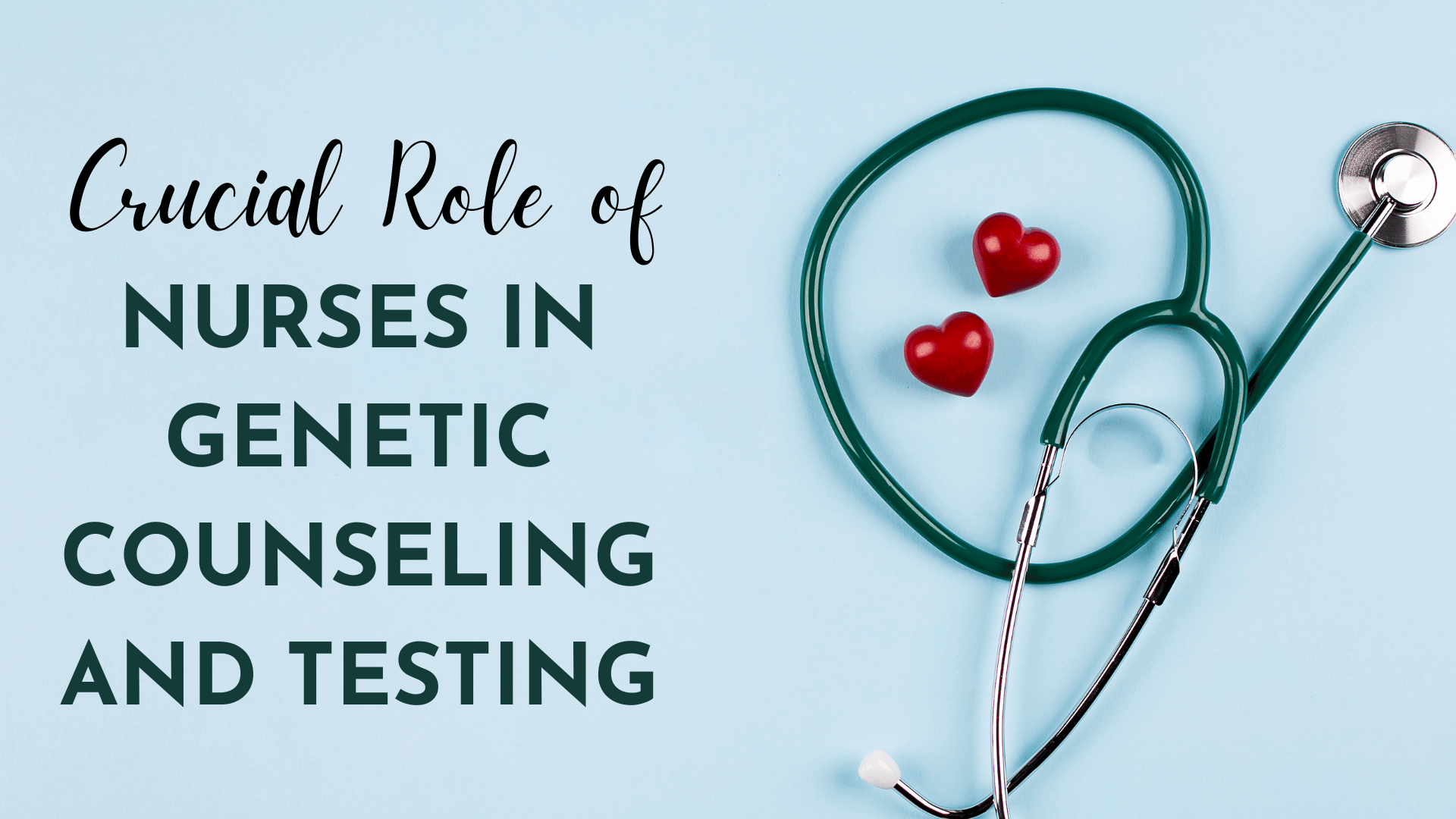In the dynamic landscape of healthcare, genetic counseling and testing have emerged as pivotal tools in understanding hereditary diseases and guiding patients through informed decisions. While genetic counselors traditionally take the lead in this field, the role of nurses in genetic counseling and testing is often underestimated yet profoundly impactful. In this comprehensive guide, we delve into the multifaceted contributions of nurses in genetic counseling and testing, highlighting their invaluable role in patient care, education, and advocacy.
Understanding Genetic Counseling and Testing
Before delving into the role of nurses, it’s essential to grasp the fundamentals of genetic counseling and testing. Genetic counseling involves the provision of information and support to individuals or families who have concerns about genetic conditions affecting their health. Genetic testing, on the other hand, entails analyzing an individual’s DNA to identify genetic variations associated with disease or to confirm a suspected genetic condition.
Table: Nurse-Led Genetic Counseling vs. Counselor-Only Sessions
| Aspect | Nurse-Led Counseling | Counselor-Only Counseling |
|---|---|---|
| Patient Satisfaction | Higher | Moderate |
| Perceived Understanding | Enhanced | Standard |
| Emotional Support | Comprehensive | Limited |
| Access to Additional Resources | Facilitated | Variable |
| Follow-up Adherence | Improved | Variable |
The Integral Role of Nurses in Genetic Counseling
- Patient Education and EmpowermentNurses play a pivotal role in educating patients about genetic counseling and testing. They bridge the gap between complex genetic concepts and layman’s terms, ensuring patients comprehend the implications of genetic information on their health and well-being. Through empathetic communication and personalized guidance, nurses empower patients to make informed decisions regarding genetic testing and subsequent healthcare management.
- Facilitation of Genetic Counseling SessionsNurses often assist genetic counselors during counseling sessions by providing logistical support, gathering relevant medical history, and facilitating communication between the counselor and the patient. Their presence fosters a supportive environment, alleviating patient anxiety and enhancing the overall counseling experience.
- Coordination of Genetic Testing ProceduresNurses are instrumental in coordinating genetic testing procedures, from sample collection to result interpretation. They liaise with laboratory staff, ensuring the timely processing of samples and accurate reporting of results. Moreover, nurses offer pre-test counseling to prepare patients for the testing process, addressing concerns and managing expectations effectively.
- Psychosocial Support and CounselingBeyond the technical aspects, nurses offer invaluable psychosocial support to individuals undergoing genetic testing. They address emotional distress, facilitate coping mechanisms, and provide resources for additional support when needed. Their holistic approach to patient care encompasses not only the physical but also the emotional and psychological aspects of genetic testing.
The Impact of Nurses on Genetic Counseling Outcomes
Research indicates that the involvement of nurses in genetic counseling significantly enhances patient satisfaction, comprehension of genetic information, and adherence to recommended healthcare interventions. A study published in the Journal of Genetic Counseling found that patients who received nurse-led genetic counseling reported higher levels of satisfaction and perceived understanding compared to those who received counselor-only sessions.
Educational Requirements and Training for Nurses in Genetic Counseling
To excel in the field of genetic counseling and testing, nurses undergo specialized training and education. Many pursue advanced degrees or certifications in genetics nursing or genetic counseling to acquire the necessary knowledge and skills. Additionally, ongoing professional development and participation in continuing education programs ensure nurses stay abreast of advancements in genetic science and counseling techniques.
Challenges and Future Directions
While nurses play a crucial role in genetic counseling and testing, several challenges persist, including limited access to specialized training programs, resource constraints, and evolving ethical dilemmas. However, advancements in technology, such as telemedicine and remote genetic counseling services, hold promise for expanding access to genetic care in underserved communities.
Conclusion
In conclusion, nurses are indispensable members of the genetic counseling and testing team, offering holistic care, education, and support to patients and their families. Their expertise, compassion, and advocacy contribute significantly to positive patient outcomes and the advancement of genetic healthcare. By recognizing and amplifying the role of nurses in genetic counseling, we can ensure equitable access to high-quality genetic services and empower individuals to make informed decisions about their health and genetic risks.

